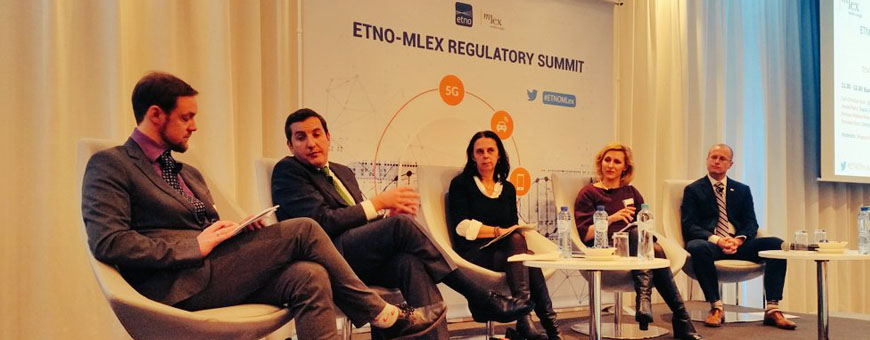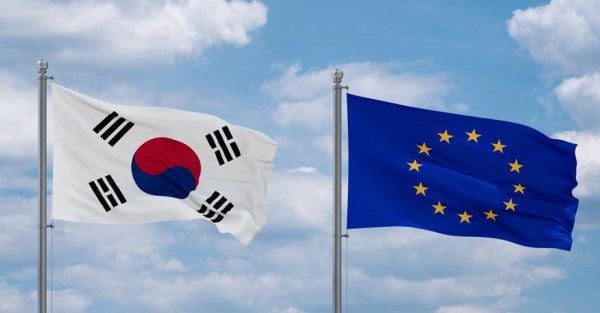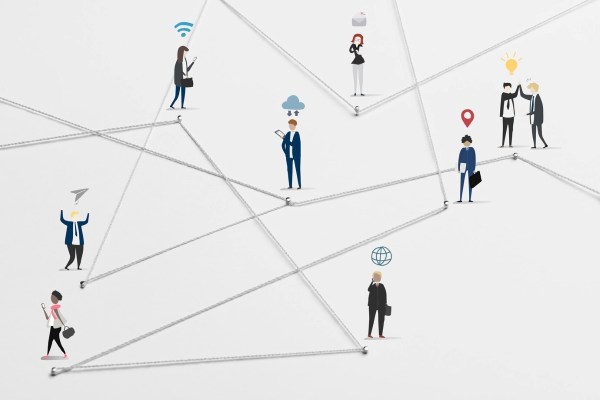ETNO-MLex Regulatory Summit 2018 took place this week in Brussels and brought 200 high-level delegates, representing telecom operators, the EU institutions, regulators, academics, investors and other industry stakeholders, to discuss key EU regulatory issues. Enrique Medina, Chief Policy Officer from Telefónica, actively participated in the panel “Business models: what’s next” where he debated along with other executives about innovation and regulation in the telecoms sector.
The executive focused his intervention in the evolution of the business models, the telecommunications role in this new era and where telcos are struggling to compete. He mentioned three main features of new business models:
I. Data-driven transformation: all businesses are realizing about the high potential of the use of data. Some businesses were born digital and data-driven, others (like Telco industry) is progressing through a digitalisation and data-driven transformation process, which will improve our capabilities and the services provided to our customers.
Regarding this topic, he said that: “Telefónica is becoming data-driven since it’s improving its traditional services and creating new and innovative services. Telefónica is nowadays on this path with the Fourth Platform. However, it is still key for us to connect everyone to the Internet, especially those who live in rural areas”.
II. Platformisation. The phenomenon of platform is difficult to defined but we all agree in several characteristics like: multi-sided, strong network effects, non-monetary transactions (data in exchange of services) and thus intensively data-driven, intermediaries controlling the ecosystem (biggest hotel with no real state -AirBnB-, biggest taxi company with no cars -Uber-, etc.)
As for platformisation he stated that: Telefónica is definitely not an online platform as most of our core business is around physical networks and not the Internet. On the other hand, we do not share some features of online platforms as for example the business based on non-monetary transaction.
III. Convergence. This is not just the convergence we were talking about ten years ago: telcos providing bundles of fixed, mobile and maybe TV…This is much bigger and wider when we think on the digital ecosystem and the Internet value chain…
“Telefónica has developed successful models of convergence, as for instance our business in Spain, where we provide a meaningful offer including telco and TV services (Fusion). However, we are struggling to compete cross-sectors (with Internet players), mainly due to the strict regulation we face”, stated.

The executives talking at the panel “Business models: what’s next”
Enrique Medina also highlighted that telcos struggle with an outdated regulation, a regulation created for a time in which competition was intra-sectorial, but now competition is more and more crossed-sectors:
1. We have to catch up with Internet players on data-driven businesses while competing with much stricter data protection rules. Indeed, this is the most worrying disadvantage we could face and this is how we see this debate.
Telefónica considers that a full alignment between GDPR and the ePrivacy Regulation (ePR) is absolutely necessary. Otherwise, by jeopardizing telecoms’ opportunity to develop innovative Big Data and data-driven dervices, ePR proposal leaves the possibility to develop such services in Europe only to other Internet players not covered within the scope of the ePR and impedes a real Level-Playing-Field and a balanced approach between innovation and privacy protection as achieved in the GDPR.
2. We are strictly scrutinized by competition authorities while they are still thinking how to deal with a new and changing reality as it is the current digital economy.
3. Thirdly, we are still suffering a quite demanding regulation of our audiovisual business (European works financing obligations) while there are no strict rules against piracy in online platforms yet.
To summarize in few words, an updated regulation (i.e. adapted to digital, data-driven economy), ensuring a level playing field among different players would help telcos in being credible competitors in this cross-sectorial environment.













